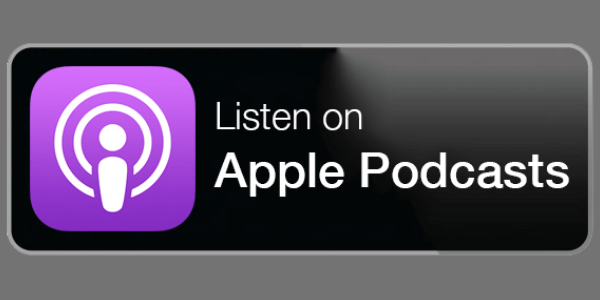Episode 40: Tackling Difficult-to-Manage Waste Streams with Hannah Julian from g2 revolution
Click the links below to listen to the full episode
Difficult-to-manage waste streams are a hurdle for corporations to overcome in their pursuit of reducing waste. In this episode, Tad and Julianna sit down with Hannah Julian, Environmental Project Coordinator at g2 revolution, to discuss g2's work with managing materials that are traditionally difficult to recycle, managing pre-consumer and post-consumer waste, working with retailers and manufacturers to establish recycling programs for their materials, giving materials a second life through their Second Life® Solutions, working with small businesses in the beauty sector through their brand GLO™, the drivers behind pursuing and achieving GreenCircle certification, and more.
Interested in submitting a question for Tad to answer on an upcoming episode? Type your question into the box at the bottom of the page!
What types of materials do you recycle? Can you tell us about recycling materials that are traditionally difficult to recycle?
“Recyclogistics® is our trademarked, coined phrase that we use to describe the attention to detail that we give to each case that comes through our door. We have different stations at our facilities where we will break down the materials by hand. Everything that comes into our facilities is hand-sorted and hand-recycled. We take beauty waste and electronic waste. We take packaging that might involve metal, plastic, rubber, and silicone and we can manage each of those materials separately. We put the attention to detail into separating these different kinds of materials, that's what makes us different than other recycling facilities or your larger waste management recycling facilities. At other facilities, they can’t accept your waste unless it is already broken down. So that's kind of where we play the middleman.
That's our methodology and our way of of approaching different projects that come to us. One of our main programs is actually with Keurig, and we recycle all of their K-Cups. We shred them, and separate the filters, the aluminum, the plastic, and then the actual coffee grounds go to recycling as well. Every part of that process is recycled. We also manage aerosols and can reuse everything in the container by sending it to downstream vendors. They will use the inside propellant for different kinds of fuel blending or different kinds of support for their own facilities. Then the actual metals and plastics from the aerosol cans will get recycled. Electronic waste is a big one for us. E-waste comes in all different shapes and sizes and then there's different kinds of batteries. We will take apart different electronics. We'll cut cords. We'll recycle everything that goes into that. The metals and the plastics can get harvested from each kind of e-waste unit that comes in.
We also recycle beauty products such as liquid foundation. We can recycle paint and alcohol-based products along with their packaging. That can get pretty tricky for a lot of states that have different regulations on alcohol-based products, but we can always find a solution for that. We have a pretty well-rounded approach to different materials that can come from different kind of retail industry sectors. Let's say you have a display case or something like that and there's different plastics to it. There's different adhesives and screws. Anything within that display case will be taken apart and deconstructed. That is what differentiates g2 is the actual effort to deconstruct so that those materials can go for recycling and be accepted.”
Are you managing pre-consumer or post-consumer materials?
“It is a big combination of both pre-consumer and post-consumer materials. We will handle a lot of bulk material for our clients. Often these bulk materials are expired, damaged or there was a misprint on the label. That waste is pre-consumer. We will handle the contents on the inside and the packaging as well. I've seen so many different kinds of projects come in to g2. For example, we had a client come in with a superfoods greens powder. There was a misprint on the label but there was nothing wrong with the product or the packaging itself. That superfood powder can be re-gifted to folks who would love to use that kind of supplement in their in their day-to-day life. So we'll work with many different donation facilities for any products that are still usable.
A lot of the pre-consumer items we'll work with are hand sanitizers. That was huge for a lot of different businesses that over-purchased hand sanitizer during COVID and now it's expired. So we'll be able to find solutions for the alcohol that's still in there even though it can’t be sold or distributed anymore. So we will be able to recycle the packaging and the contents inside.
Post-consumer materials that we manage can get really interesting specifically with dirty plastics. Dirty plastics are a huge topic of conversation in the waste and sustainability industry. What do you do with them? How do you clean them? How can you recycle them? Who wants to clean those things? Can you separate them? What kind of material is still on that plastic like lotion or makeup? We're very fortunate at g2 to have partners that have processing that can manage dirty plastics with different wash tanks, dryers, or shredders. Then they are equipped to handle the outcome and the byproduct of their processing as well.
We also handle a lot of large-scale recalls on products that had to be pulled back for whatever reason. So we have a very large combination of both pre-consumer and post-consumer materials.”
What was the driver behind your decision to get GreenCircle certified?
“I think that getting third-party certified is generally a smart move when you want to be able to communicate to your clients. You want to say ‘this is who we are and this is the mission that we want to be able to promise to you’ but without a report card or without anybody else making the checks and balances, you just get to say ‘trust me, I pinky promise.’ or ‘I swear we will not go landfill.’ or ‘I swear we'll find some kind of solution for it.’ GreenCircle specifically as our third-party certifier is a very straightforward decision for us because of the the at-length detail they go into using prior reports and comparing those reports annually. With the most recent audit that we did with GreenCircle, a lot of conversation came up with our past reports because our business has changed and it has grown. GreenCircle really does their homework to be able to say, ‘hey, you didn’t have this waste stream in the past, what's going on there and where is that going?’
It forces us to really get in touch with our trends, with the waste we are accepting, and with the waste that we are managing. That's why GreenCircle is a no-brainer for us in terms of which third-party we wanted to go with. Getting third-party certified creates an extra layer of trust with our prospective clients and allows our clients to move forward with us on different projects with more confidence.”
About Hannah Julian
Hannah Julian is the Environmental Project Coordinator at g2 revolution, a recycling company specialized in managing retail industry and consumer products. At g2 revolution, Hannah searches for sustainable recycling solutions for hard-to-manage pre- and post-consumer waste. She received her education from the University of Wisconsin-Madison in Agricultural Economics, Agricultural Business Management, and Environmental Studies, where she worked in agricultural research & development and published research on small business recovery and economic recession. Ms. Julian worked with the Wisconsin State Capitol studying local and environmental legislation, and successfully completed 6 years of military service with the Wisconsin Army National Guard. To support g2 revolution’s nationwide service, Hannah researches in sustainable procurement to find responsible and compliant methods of recycling and waste management. She facilitates the donation of millions of pounds of materials annually to charitable partners over multiple states and has successfully led g2 revolution through 2 years of landfill diversion during her time there. Through her continued efforts and consult, g2 revolution has introduced its first closed loop procurement solution, received the Ohio EPA E3 Award, ESGR recognition, remained Platinum Status with the Green Business Bureau, and secured landfill diversion certification at all 3 g2 revolution locations.
WE’RE ANSWERING QUESTIONS FROM OUR AUDIENCE!
Anonymously ask Tad a question about sustainability by typing your question in the box below.
We will answer your questions on an upcoming episode.






